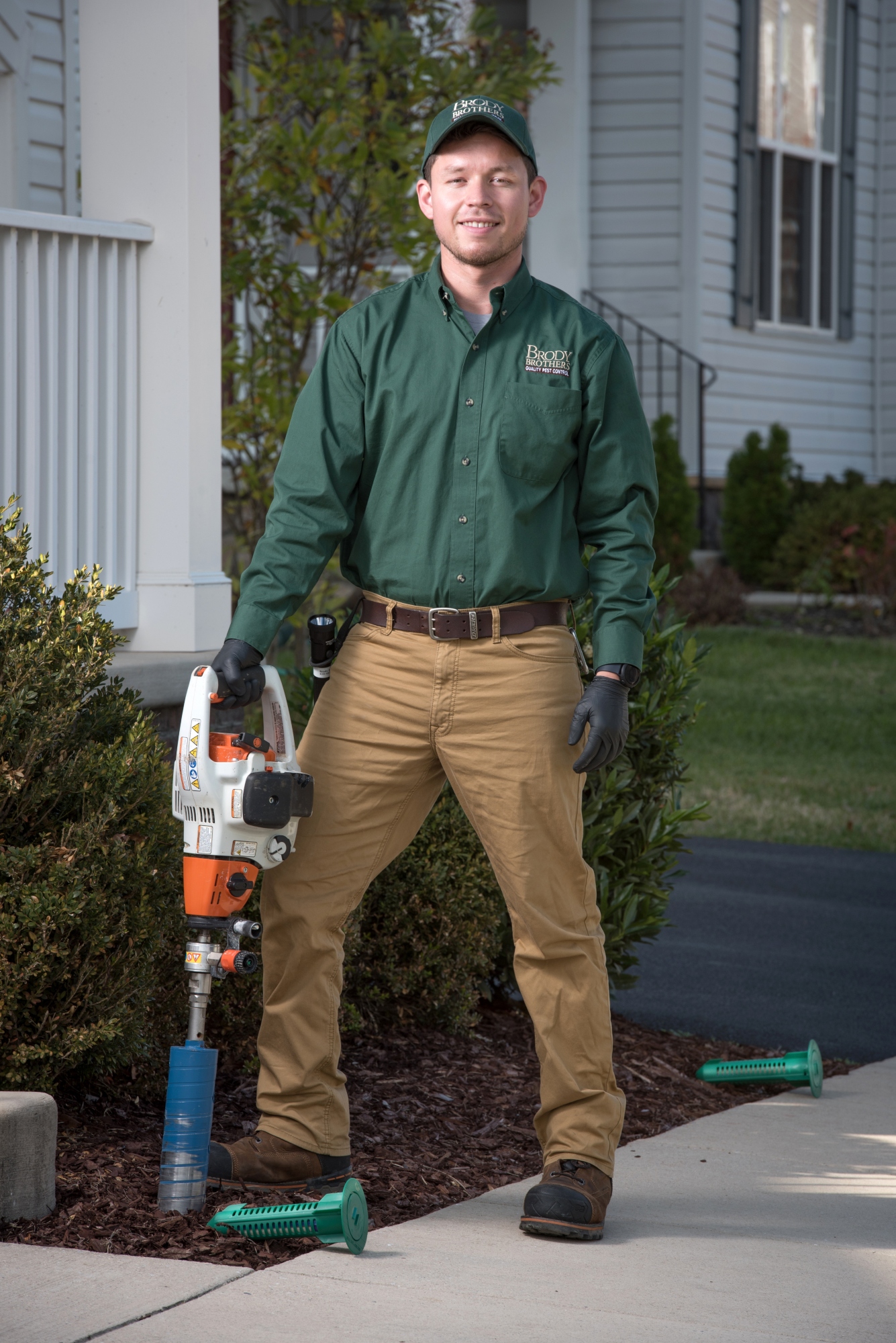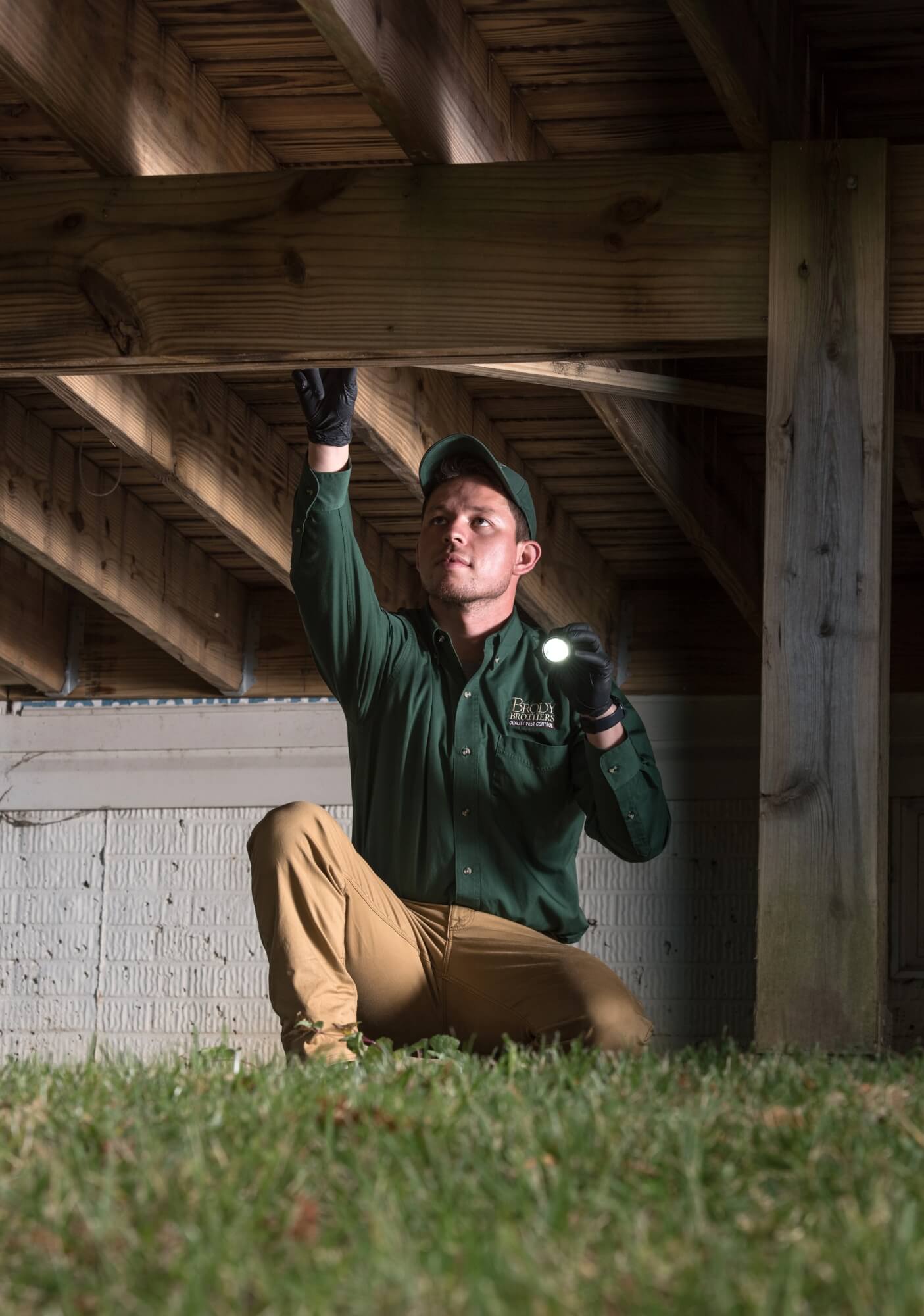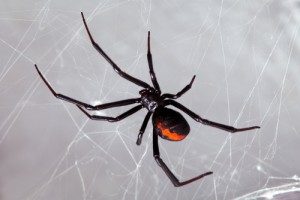The black widow spider is one of the only three venomous spiders in North America. Only females bite and their venom is 15 times stronger than rattlesnake venom.
Although a black widow spider bite is not usually fatal, it does kill 5% of its victims. This is often young children, those who are ill and the elderly.
The female black widow spider has:
- A round, shiny black body 1 ½ to 1 ⅜ inches long
- A red-orange or yellow hourglass-shaped mark or dot on its belly
A male black widow spider has:
- A lighter colored body than the female that’s only half its size
- Longer legs that are marked by orange and brown joints
- A red or pale brown stripe down the middle of its back and white or yellow streaks extending outward
The black widow spider got its name because the females have a reputation of killing the male after mating. Though some males do survive, the females usually live up to their name.


Black widow spiders build large, irregular webs which they use to snare prey and hold their egg sacs, which contain hundreds of eggs. They prefer dark, damp, and protected places such as sheds and other outdoor structures, cracks in stone walls, fences, woodpiles, and even porch furniture. They seek out basement and crawl space areas inside the home.
Black widows are not usually aggressive, but will attack if they feel that they or their eggs are threatened. It’s always a good idea to check for these spiders if you’re reaching for a tool in the back of a shed or putting on shoes stored outdoors.
If you’re bitten by a black widow spider, it may feel like a pinprick at first, but within 15 minutes more severe symptoms can occur, such as:
- Muscle aches
- Nausea
- Headache
- Vomiting
- Paralysis of the diaphragm
These symptoms can last for several days to a few weeks.

As a Home Protection Plan customer, if you’re not satisfied with our pest control service, we will service your home at no additional cost until your issue is solved or receive your money back from your last scheduled service.

If you suspect you’ve been bitten by a black widow, try slowing the spread of venom by applying ice to the bite area and elevating and immobilizing the bite area. Call for medical help immediately.
You can vacuum up black widow spiders, but if an infestation is bad, then don’t wait. Call the experts at Brody Brothers for help in keeping these dangerous spiders out of your Baltimore home.
Brody Brothers offers black widow removal services in the Baltimore Metro Area. Our pest control services will keep these unwanted visitors out.
Call us at 410-653-2121 or make an appointment online to request an estimate, schedule and appointment, and remove black widow spiders from your Maryland home now.


